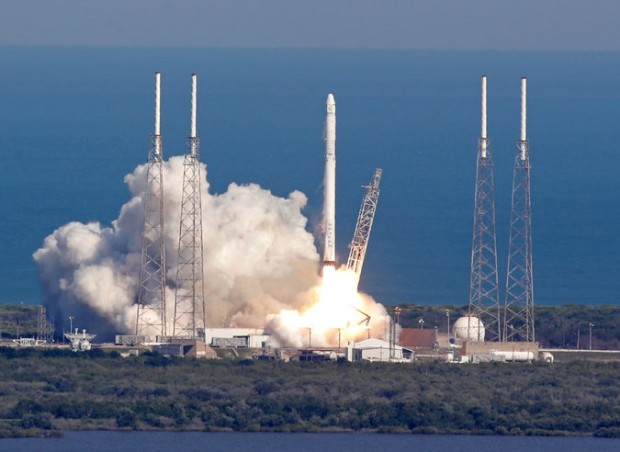SpaceX NASA rocket launched after four times failure

For SpaceX, the fifth time was the charm in the impressive feat of landing a rocket on a boat.
On Friday, SpaceX — more formally known as Space Exploration Technologies Corporation of Hawthorne, Calif. — launched a mission taking cargo for NASA to the International Space Station. While the capsule carrying 7,000 pounds of
experiments, supplies and equipment continued to orbit, the booster stage of the Falcon 9 rocket turned around and headed back toward a floating platform off the coast of Florida.
SpaceX had attempted this maneuver four times before. Each time the booster stage reached the platform only to tip over and explode.
This time, the booster settled down on the boat, named “Of Course I Still Love You,” and remained upright, to loud cheers at SpaceX’s California headquarters and chants of “U.S.A.! U.S.A.!”
Elon Musk, the founder of SpaceX, has said reusability of rockets is crucial to reducing the cost of sending payloads to space. Both SpaceX and Blue Origin, another rocket start-up from another Internet entrepreneur, Jeffrey P. Bezos of Amazon, have made successful strides in landing rocket stages in the past half year.
This is the second time SpaceX has successfully landed a booster stage. In December, it was able to fly the booster all the way back to land and set it down in one piece at Cape Canaveral.
Friday’s main mission of sending cargo to the space station was also a success, lifting off from Cape Canaveral Air Force Station.
The Dragon capsule will arrive at the space station on Sunday. The cargo includes an inflatable module, with soft instead of metal walls, which is to test technology that could be used for future deep-space missions.
How to submit an Op-Ed: Libyan Express accepts opinion articles on a wide range of topics. Submissions may be sent to oped@libyanexpress.com. Please include ‘Op-Ed’ in the subject line.
- UN chief rejects Israeli Gaza aid proposal - April 09, 2025
- Libya’s financial feud escalates as PM accuses rivals of sabotage - April 09, 2025
- Libyan parties urge action in UN talks - April 09, 2025


